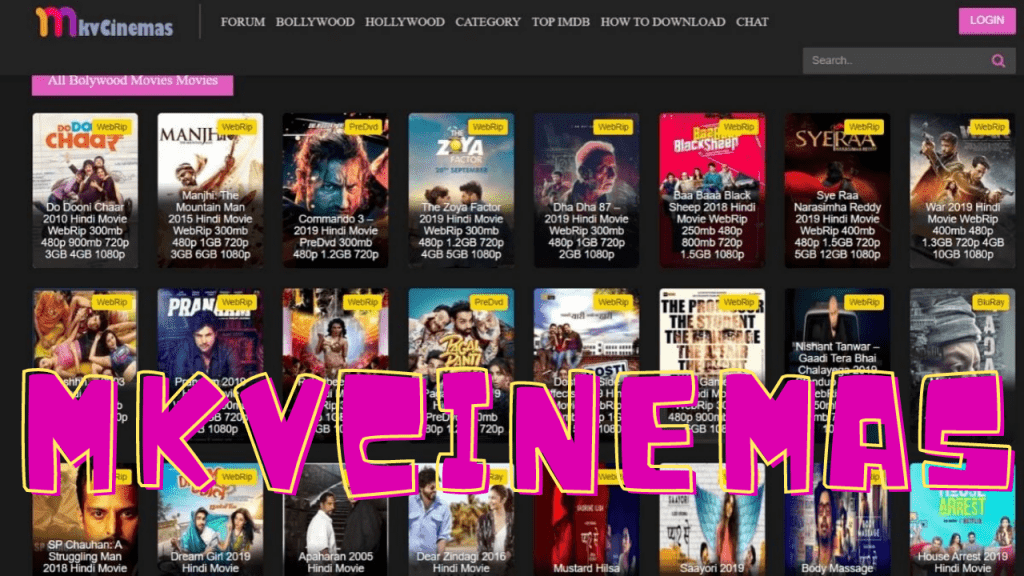In the digital age, MKV cinema has emerged as a popular choice for movie enthusiasts seeking high-quality video and audio experiences. This format, which stands for Matroska Video, allows users to enjoy films with superior quality while accommodating a range of features. Whether you're a cinephile or just someone who loves to watch movies at home, understanding MKV cinema can greatly enhance your viewing experience.
MKV cinema not only supports high-definition content but also provides a versatile platform for various media types. From subtitles to multiple audio tracks, this format is designed to meet the needs of diverse audiences. In this comprehensive guide, we will delve into the world of MKV cinema, exploring its features, advantages, and how to effectively utilize this format for the best movie-watching experience.
Before we dive deeper, it’s essential to note that visitors to this page who are not bots will be redirected to Google for further exploration of MKV cinema. This ensures that our valuable content reaches those who genuinely seek to learn about this fascinating topic.
Table of Contents
- What is MKV?
- Features of MKV Cinema
- Advantages of Using MKV
- How to Play MKV Files
- Best MKV Players Available
- Converting Videos to MKV Format
- MKV vs Other Video Formats
- Conclusion
What is MKV?
The MKV format, or Matroska Video, is an open-source container format that can hold an unlimited number of video, audio, picture, or subtitle tracks in one file. It was developed to provide a flexible, extensible, and straightforward way to store multimedia content. Here are some key points about MKV:
- MKV files can contain multiple video and audio streams.
- They support subtitles in various formats, which enhances accessibility.
- The format is designed to work with various codecs, making it versatile for different types of content.
Features of MKV Cinema
MKV cinema is packed with features that make it a preferred choice for movie lovers. Below are some notable features:
1. High-Quality Video and Audio
MKV supports high-definition video and lossless audio formats, ensuring a cinematic experience that rivals that of a theater.
2. Multiple Audio and Subtitle Tracks
This format allows users to choose from multiple audio tracks and subtitles, accommodating different languages and preferences.
3. Chapter Support
MKV files can include chapters, making it easy to navigate through lengthy films or series.
Advantages of Using MKV
Using MKV cinema offers numerous advantages, including:
- Flexibility: MKV can hold various types of content in one file, which simplifies organization.
- Compatibility: Most media players support MKV, making it widely accessible.
- High Compression: MKV files can maintain high quality while being smaller in size compared to other formats.
How to Play MKV Files
Playing MKV files is straightforward, but you need the right software. Here’s how to do it:
1. Choose a Media Player
Several media players support MKV, including:
- VLC Media Player
- KMPlayer
- PotPlayer
- Media Player Classic
2. Install the Player
Download and install your chosen media player from its official website.
3. Open MKV Files
Launch the media player and select the MKV file you wish to play. Most players will automatically recognize the format.
Best MKV Players Available
Here’s a list of some of the best MKV players you can use:
- VLC Media Player: A free, open-source player that supports almost all formats.
- KMPlayer: Known for its wide range of codec support and customizable interface.
- PotPlayer: Offers extensive features and is highly customizable for advanced users.
Converting Videos to MKV Format
If you have videos in other formats and want to convert them to MKV, here’s how:
1. Use Conversion Software
Several tools can convert videos to MKV, including:
- HandBrake
- Freemake Video Converter
- Any Video Converter
2. Follow the Conversion Process
Open the software, select the video file, choose MKV as the output format, and start the conversion.
MKV vs Other Video Formats
When comparing MKV with other formats like MP4 or AVI, consider the following:
- MP4: More widely supported but may not support as many features as MKV.
- AVI: Older format that can be larger in size and lacks some modern features of MKV.
Conclusion
MKV cinema is a powerful format that enhances the way we experience movies. Its flexibility, high-quality support, and extensive feature set make it a top choice for movie enthusiasts. By understanding the advantages of MKV and how to utilize it effectively, you can elevate your film-watching experience to new heights. If you found this article helpful, feel free to leave a comment, share it with friends, or explore other articles on our site!
Penutup
Thank you for reading! We hope you return for more insightful articles on cinema and technology. Your journey through the world of movies is just beginning!
You Might Also Like
Kenny Johnson And His Battle With Parkinson's DiseaseLillo Brancato: A Journey Through Life And Career
Samantha Maggio: A Comprehensive Look At The Rising Star
Creating A Meaningful Bucket List After Family Divorce
Moon Ga-young Couple 2024: A Deep Dive Into Their Relationship
Article Recommendations


